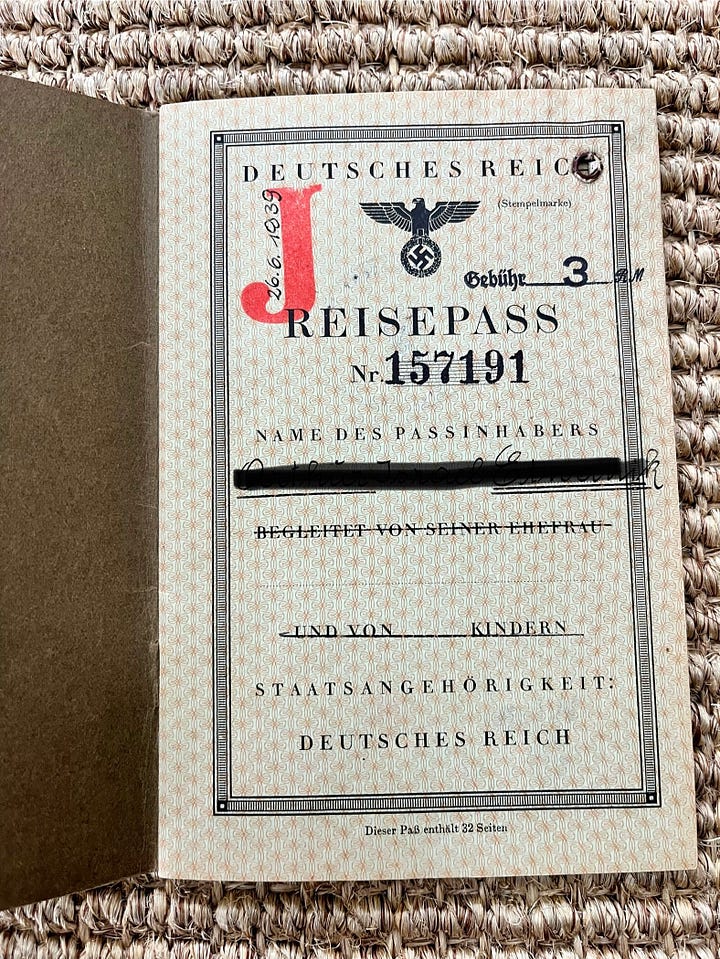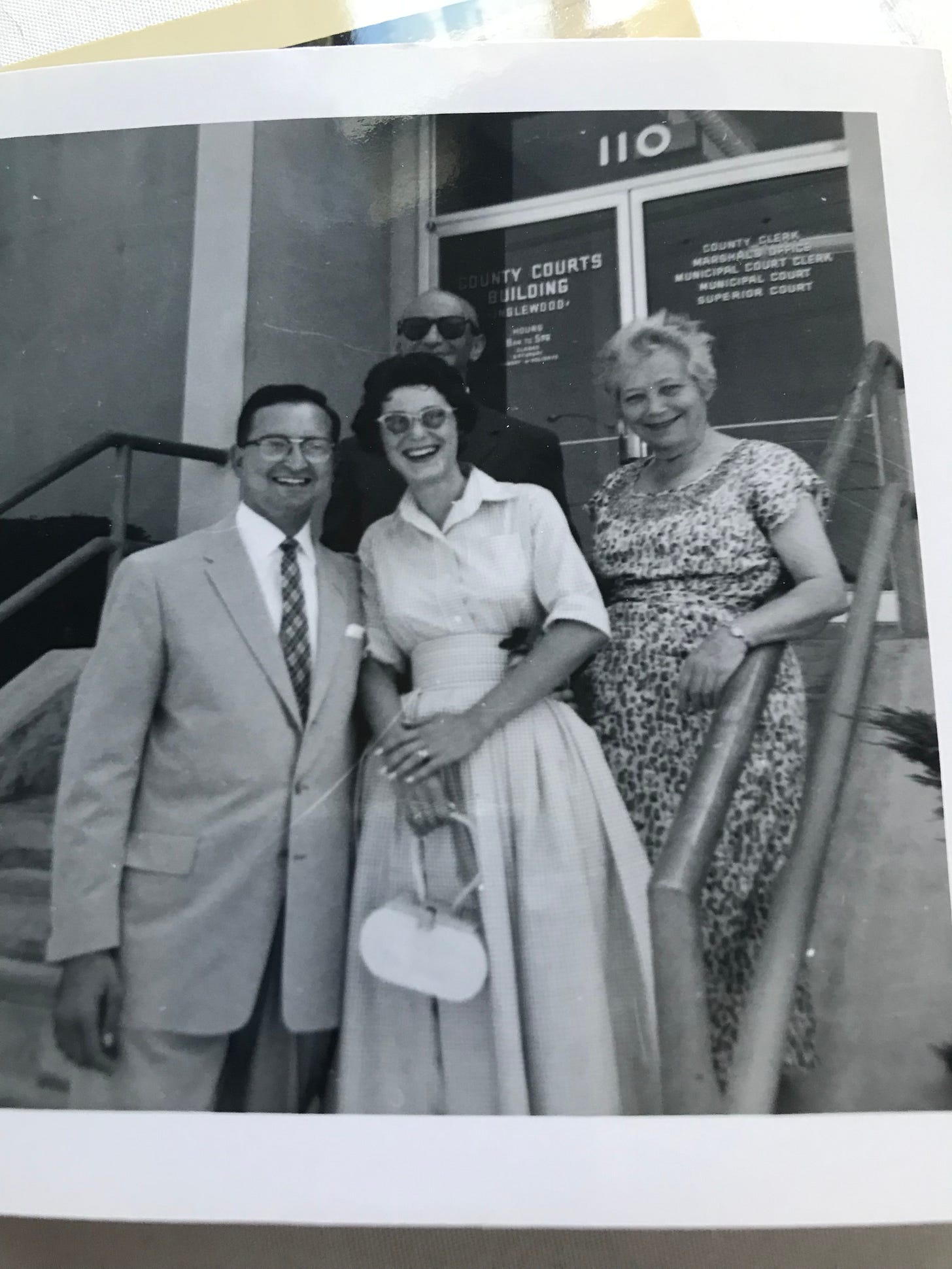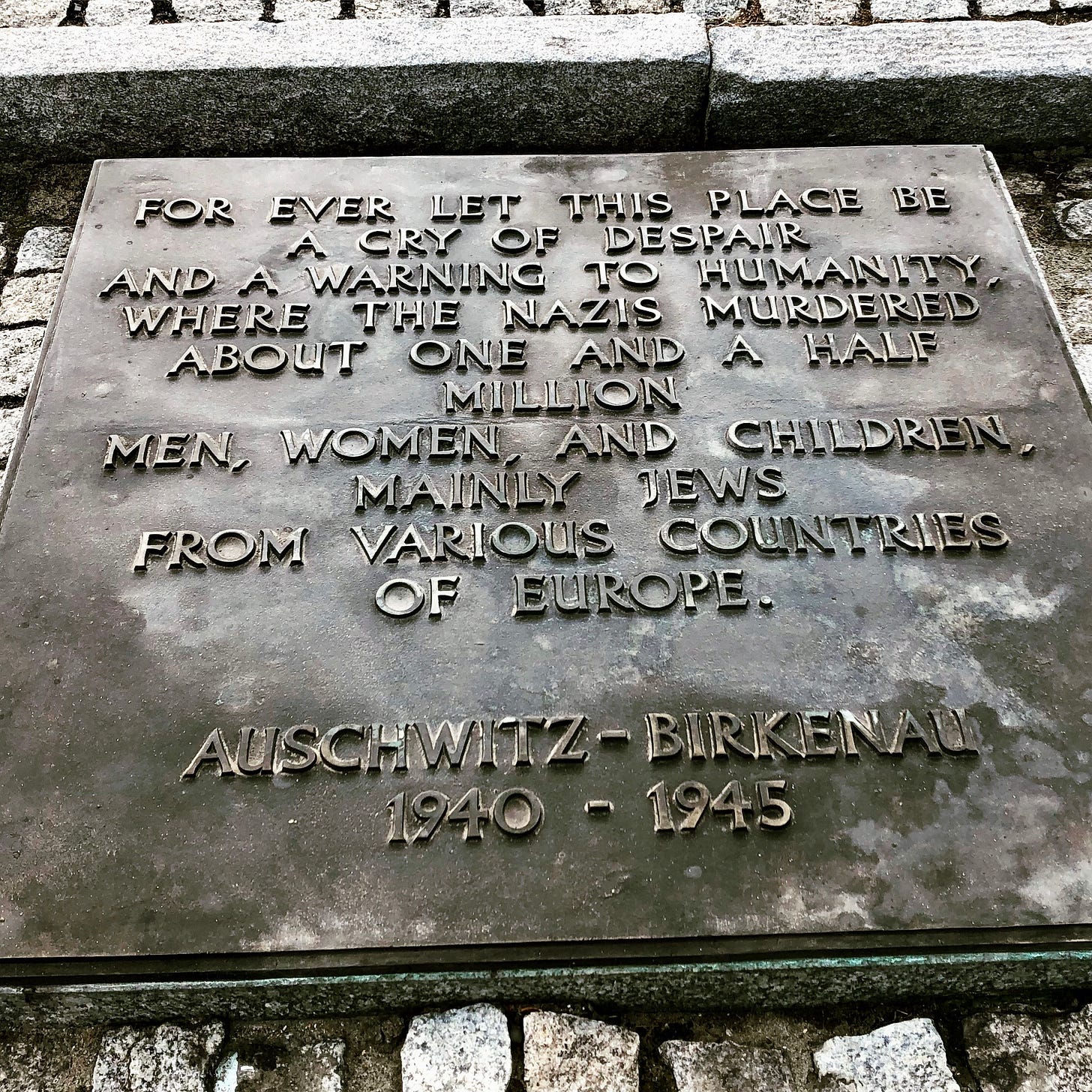Yom Hashoa
My new Jew crew
Yom Hashoa is the annual commemoration of the Holocaust. Shoa means catastrophe, or disaster. It’s this coming Sunday, April 27th and I’ll be working the door at the congregation, helping to honor the memory of the six million Jews murdered by the Nazis.
I’ve never been religious. My dad moved away from his Orthodox Jewish family back in Pittsburgh. He had a beef with his mom, got on a train from Pittsburgh to Los Angeles when he was 20, and never looked back.
My mom is a Holocaust survivor. My grandma and grandpa put her on a train when she was 12. That was the Kindertransport, and it took her to safety in England where a family with a daughter her age, took her in.
Like many Holocaust survivors, my mom never celebrated her Judaism. The Holocaust didn’t kill her, but it did kill her childhood.
Between my mom and dad’s experiences, our household was pretty secular.
My grandma and grandpa got out of Austria just before Hitler invaded Poland, starting WWII. My grandpa found a sponsor in America, where he worked as an accountant. They settled in Boston and managed to find my mom, reuniting with her a year later when she was 13.
My grandparents were lucky to get my mom out, get out themselves and then find my mom. My grandpa was a WWI hero and I think that’s how he escaped—he had friends in the military.
The holocaust splintered my mom’s family. Many died in Europe or got out wherever they could as refugees—I have family in Australia and Ecuador.


When my mom got out of high school, my grandpa’s job took him to Los Angeles. About 5 years later my mom and dad met at UCLA.
A few years after that, they married downtown at the LA courthouse, with my grandpa and grandma as witness.
Leaving Microsoft gave me time to spend with my parents at the end of their lives. I wanted to keep my Moms story alive, and I started working with a local group called The Holocaust Story Project. We bring first and second generation survivors into classrooms to tell their stories.
HSP members overlap with the group that puts on the annual Yom Hashoa commemoration and I got recruited. I don’t know much about Judaism, but the group tolerates me because my skills are useful and I drop the average age by a decade or so.
They’re all great; I appreciate and enjoy my new Jew crew.
One of my jobs for Yom Hashoa is putting together nametags for the event: Survivors, Rabbis, Musicians, Volunteers. We have 6 survivors this year, each with the heavy weight of representing 1 million Jews apiece. Each survivor lights a candle to remember them. I inherited a box of nametags from past years and there used to be so many survivors they had to split them into two groups: A-L & M-Z.
I remember going with my dad down to the bakeries on Fairfax Avenue in LA, and it was common to see concentration camp tattoos (numbers) on the forearms of people working and shopping in the bakeries and grocery stores down Fairfax Avenue. You don’t see that anymore.
My mom died last year at 98. The survivors that are still alive, got out when they were little kids. Someday, we will light candles to them.
The summer after my youngest kid went through WW II history in high school, we took a roots trip to Central Europe. We wanted to visit Vienna and see where my mom grew up.
But we started in Poland, so we could visit Auschwitz-Birkenau. Birkenau was Hitler’s scaled up plan for Auschwitz. It’s just across the road and nearly ten times bigger. At the back of Birkenau, beyond where the railroad lines end, adjacent to the gas chamber, there is a memorial with 23 plaques in 23 different languages representing the nationalities of the 1.5 million Jews murdered there.
JFran and I worried about visiting Auschwitz. Seemed like a really heavy thing to put on our kids. But we decided it was a necessary thing, especially given their grandma’s past. The compromise was eating lots of ice cream afterwards.
From Poland, we took trains through the Czech Republic, Austria and Slovakia, ending up in Hungary. We saw a lot, but Auschwitz and Birkenau is the thing we all remember.
Auschwitz-Birkenau leaves an indelible impression of what was, and must never be again. We won’t forget it.








Hope you don’t mind me adding to the story: our father’s family. While our dad and his siblings were born in the states, both paternal grandparents had extended families still in the Russia/Poland area. Our father rarely talked about the family history, but when uncle John came to town, he told many stories.
Evidently many of the family members still in Europe, the brothers and sisters of my grandmother and grandfather and their families , were taken to camps and/ or killed out right.
One story that stuck in my mind was of an entire family , one of my grandfather’s brothers, killed by the Nazis, their house and fields burnt to the ground. The story was that one daughter, a child, escaped to the woods, and lived with others also in hiding, until the end of the war. I believe she eventually was sponsored and made it to the states post World War II.
I remember taking a trip to the east coast with mom when I was 11 or 12. I met an overwhelming number of relatives that I had never met before (and have never seen since,) but a few had those forearm numbers tattoos. That was a reality check I will never forget.
Love this. Thanks so much for sharing. That's so great that you had the time, and that you made the time, to be involved in such a unique and heartwarming project.